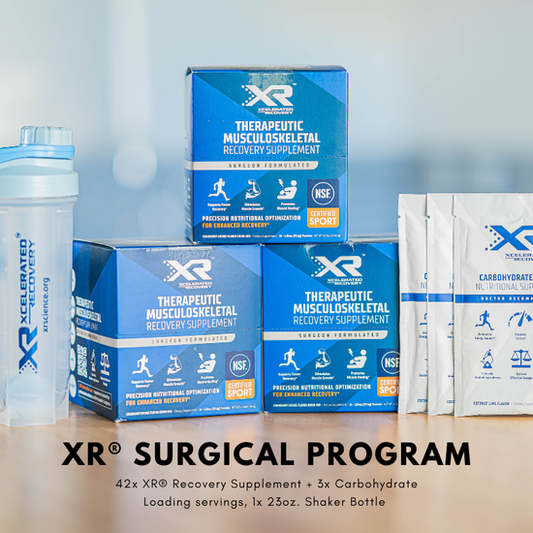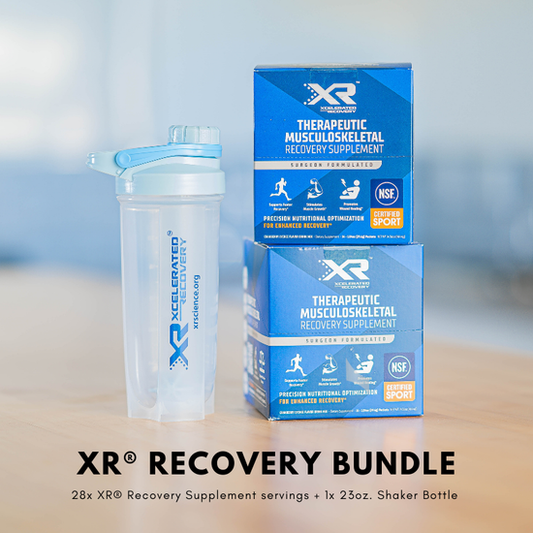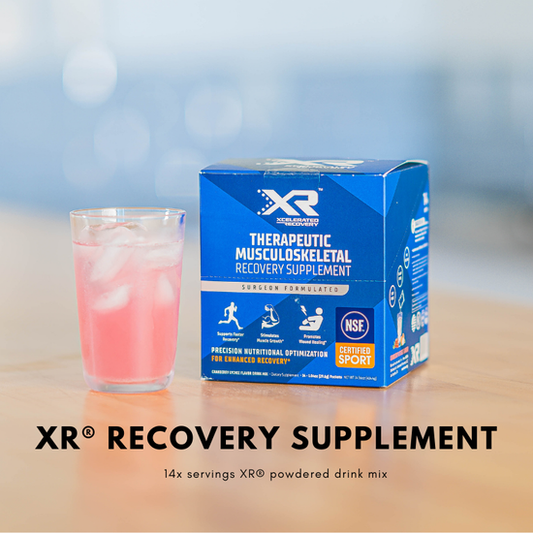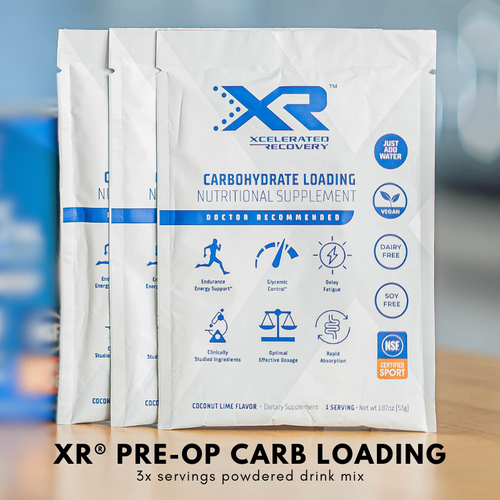Surgical Recovery Products
After surgery, your body works hard to heal, rebuild, and recover. Without proper nutritional support, it will break down its own muscle (catabolic state) to meet the increased demands for healing. This process can lead to significant muscle loss, slower recovery, and reduced strength.
Providing your body with the essential nutrients it needs, like leucine-enriched amino acids and preop carb loading, sets the foundation for faster healing, stronger recovery, and fewer complications. Start your recovery journey with the right support today!
-
XR® Surgical Recovery Program
Regular price From $399.00 USDRegular priceUnit price / per -
XR® Recovery Bundle
Regular price $254.49 USDRegular priceUnit price / per -
XR® Recovery Supplement
Regular price From $129.99 USDRegular priceUnit price / per -
XR® Pre-Op Carb Loading | 3-pack
Regular price $21.40 USDRegular priceUnit price / per
Frequently Asked Questions
What is the Xcelerated Recovery® Surgical Recovery Program?
The XR® 3-Week Program is designed to enhance recovery outcomes for those undergoing surgery. This program integrates scientifically formulated supplements and nutritional strategies to optimize your body’s healing process before and after surgery, procedures, or injury.
The program includes:
- 1 Week Pre-Surgery: Take 2 packets daily of XR® Therapeutic Musculoskeletal Recovery Supplement and consume 2 servings of XR® Carbohydrate Loading Drink the evening before surgery.
- Day of Surgery: Take 1 serving of XR® Carbohydrate Loading Drink 2–4 hours before surgery.
- 2+ Weeks Post-Surgery: Continue with 2 packets daily of XR® Therapeutic Musculoskeletal Recovery Supplement to aid recovery, wound healing, and muscle repair.
What does the 3-Week Bundle Include?
The 3-Week Surgical Program includes:
- 42 servings of XR® Therapeutic Musculoskeletal Recovery Supplement (powder drink mix)
- 3 single servings of XR® Carbohydrate Loading Supplement (Pre-op)
- 1 (23 oz) shaker bottle
- Personalized Muscle-Centric Diet Calculator
- Perioperative dietary/meal guidelines
- Patient support email journey for guidance and assistance
When should I order my program?
We recommend ordering your program at least two weeks prior to your surgical date to account for potential shipping delays. Our warehouse operates Monday through Friday, with a cutoff time of 11:00 AM PST for same-day shipping. Orders placed on weekends are processed on the next business day.
What is the Xcelerated Recovery® Therapeutic Musculoskeletal Recovery Supplement?
The XR® Therapeutic Musculoskeletal Recovery Supplement is a powder drink mix designed for surgical recovery and includes:
- Clinically studied ingredients at optimal dosages
- Helps stimulate muscle growth and promote wound healing
- Supports faster recovery and prevents muscle atrophy
- NSF for Sport Certified® for safety and quality assurance
- Vegan-friendly, lactose-free, gluten-free, and free from added sugars
- Low-calorie (70 calories per serving)
- Cranberry Lychee flavor, 29g per single-serving packet
What is the XR® Pre-Op Carbohydrate Loading Drink?
The XR® Carbohydrate Loading Drink supports pre-surgical optimization by:
- Providing complex carbohydrates to reduce surgical stress
- Improving glycemic control and hydration
- Adhering to ERAS® (Enhanced Recovery After Surgery) guidelines
- Refreshing Coconut Lime flavor, 54g per single-serving packet
How is XR® different from other products?
XR® offers:
- Lower caloric intake for more nutrient dense intake
- Higher leucine concentrations for muscle repair
- Surgeon formulated and recommended
- Specialized vitamins and nutrients specific for surgical recovery
- Vegan-friendly and compliant with ERAS® guidelines
- No added sugars or unnecessary additives
Does insurance cover XR® products?
- Medicare/Medicaid does not cover XR® products.
- HSA/FSA may cover the purchase via our partner Truemed with a letter of medical necessity from your healthcare provider.
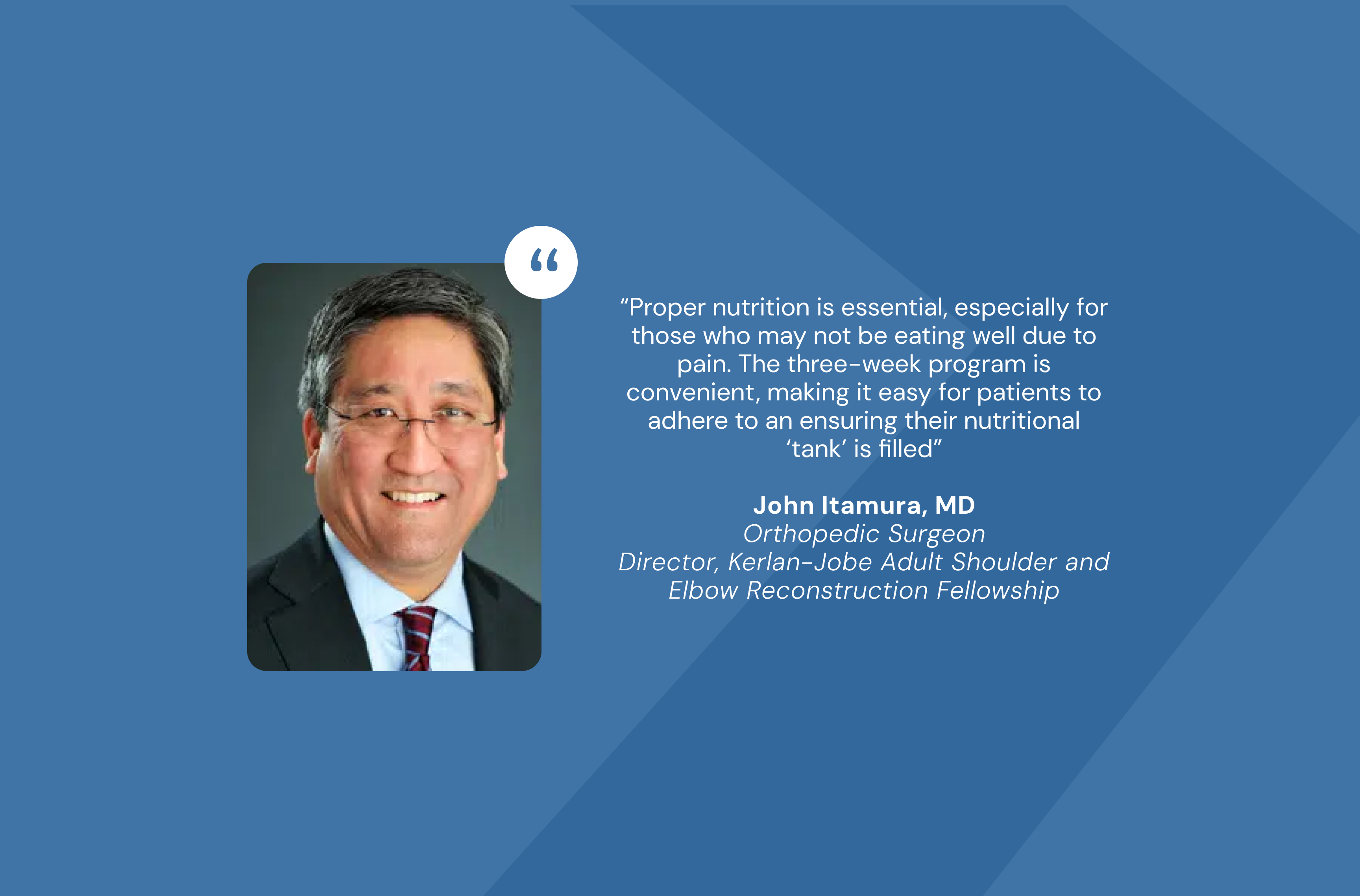
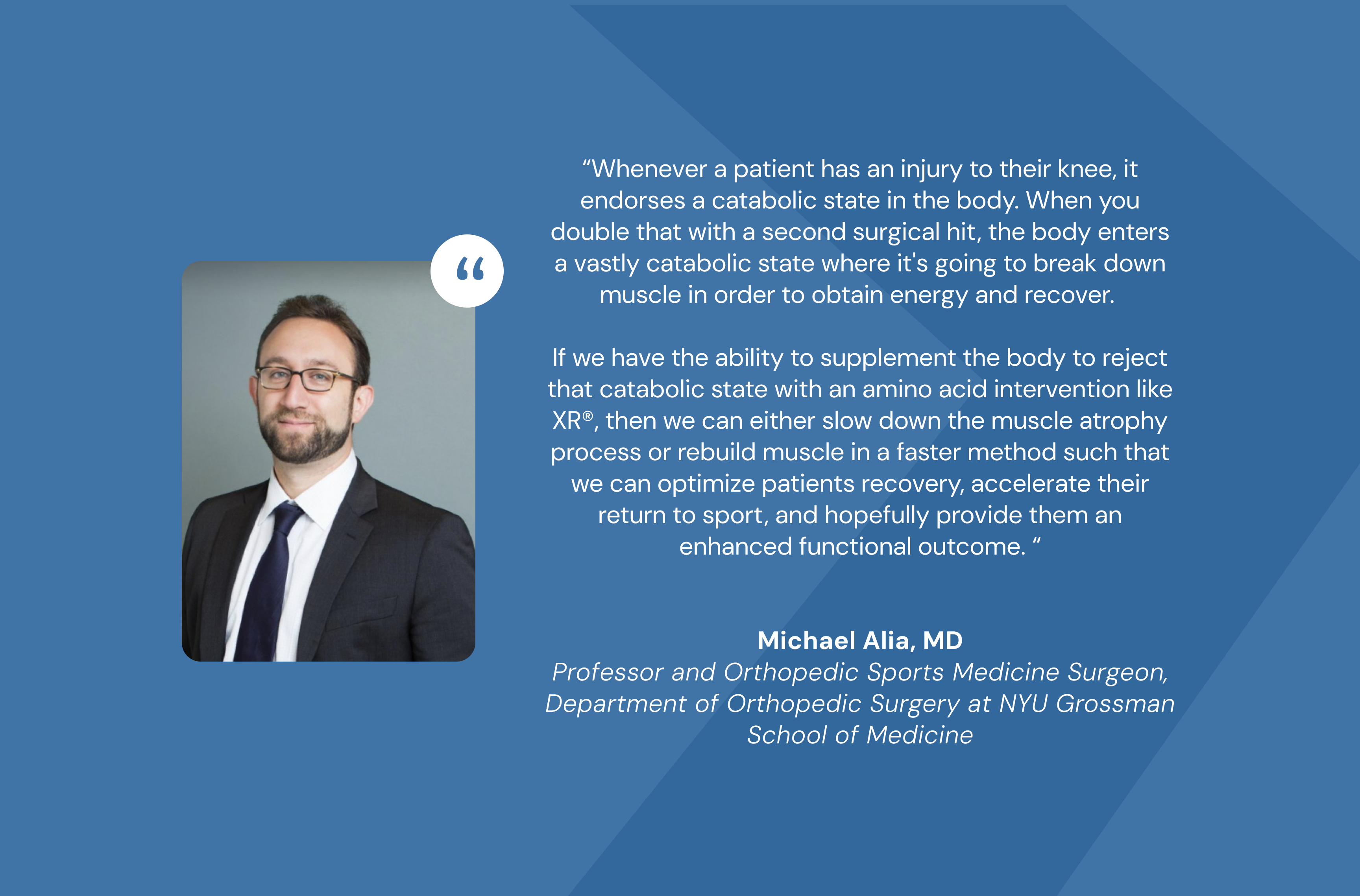
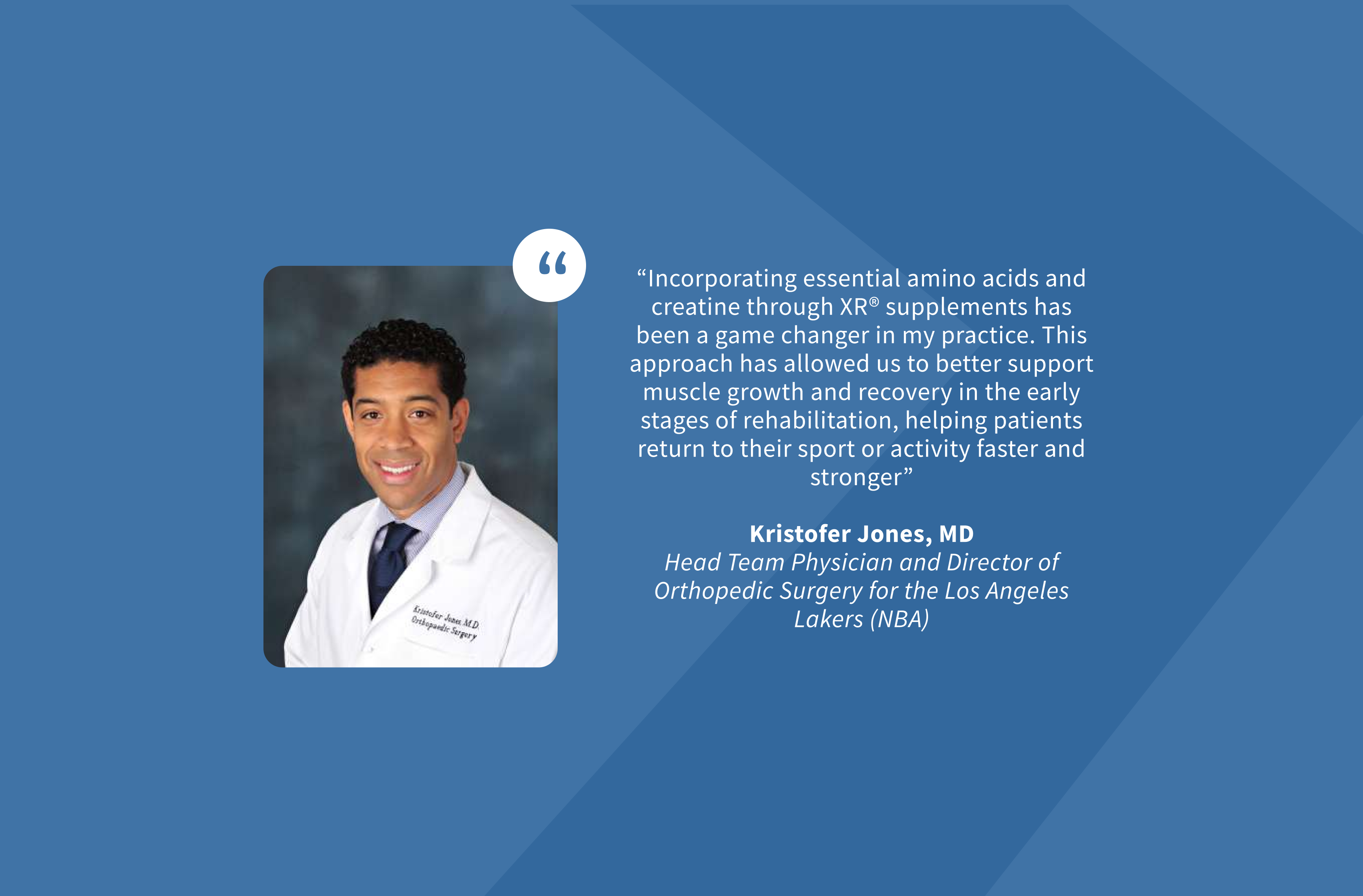

FSA/HSA Eligibility
We believe nutritional optimization for recovery should be simple and accessible, and we're always looking for new ways to bring this to our patients. This is why we've teamed up with Truemed. Truemed allows you to use your Health Savings Account (HSA) or Flexible Spending Account (FSA) for your Xcelerated Recovery® purchases. Getting started with Truemed is simple and you can save up to 40%. Just follow the steps below to see if you qualify.

